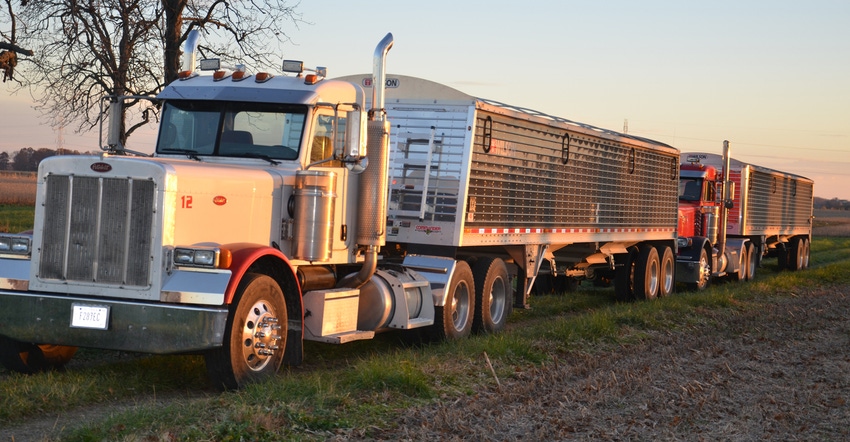April 26, 2018

Accidents on the road with straight trucks and semis can cost farmers mega bucks if they’re found to be fully or partially at fault. The average jury award for an accidental death runs into the millions. It pays to “think like a lawyer” before you find yourself needing one.
While scenarios like truck crashes are scary, much of the fear and consequences that come from a serious accident can be prevented by adopting a “lawyer mindset” and being proactive. Little things really are a big deal.
Purdue University’s Fred Whitford relates this message to audiences often. Whitford is director of Purdue Pesticide Programs. He’s seen what happens when a grain trailer overturns on a sharp curve, when a horse trailer becomes unhitched and darts across the highway, and when trucks carrying spray tanks to the field are involved in accidents. He knows the risks go beyond that of physical injury and personal property loss.
5 tips
Get in the habit of practicing these five tips, Whitford says. They will help reduce the odds that you’ll find yourself in an awkward position.
1. Make sure you’re adequately covered. Whitford says at least 20% of drivers on the road aren’t licensed, so you can bet they’re not insured either. Another 30% have the absolute minimum insurance coverage allowed by law, which “wouldn’t fix a bicycle if they ran over it.”
You need to make sure you’ve adequately protected yourself for uninsured and underinsured drivers for both medical costs and repairs to your truck or equipment.
2. Investigate an umbrella insurance policy as cheap insurance. An umbrella policy provides a predetermined amount, usually millions of dollars of additional coverage, for whatever you have in your regular policy. It’s relatively cheap, and good insurance for managing risks of accidents, Whitford says.
3. Make sure trailers are covered if they come unhitched. Seeing an uncoupled livestock trailer come flying down the road at you is scary, but Whitford has multiple videos showing it does happen. “One-third of all trailers are going to come unhitched at some point,” he says.
Most farmers assume their trailer is covered by their truck policy, and it is — if it stays hitched. But under many policies, once that trailer becomes unhitched, it’s no longer considered a part of the covered vehicle and is no longer covered. It may cost an extra $70 to address this issue, but if your trailer comes unhitched, it’s well worth it. Check with your insurance carrier, Whitford says. If he or she says an unhitched trailer is still covered, get it in writing.
4. Think twice before loaning out your truck. When you lease a rental car, your regular insurance will generally cover you. But that isn’t the case with trucks, Whitford says. If you loan a truck to a friend, whatever insurance the truck has pays for any damages, and you’re taking on the liability of the person driving it. Make sure your friendship can pass the liability test.
5. If you have an accident, know whom to call. Call the sheriff to have documentation of what happened, Whitford says. Take photos for additional documentation. Make sure the driver is taken for a drug and alcohol test. Notify your insurance carrier as soon as possible.
Boone writes from Wabash, Ind.
About the Author(s)
You May Also Like






